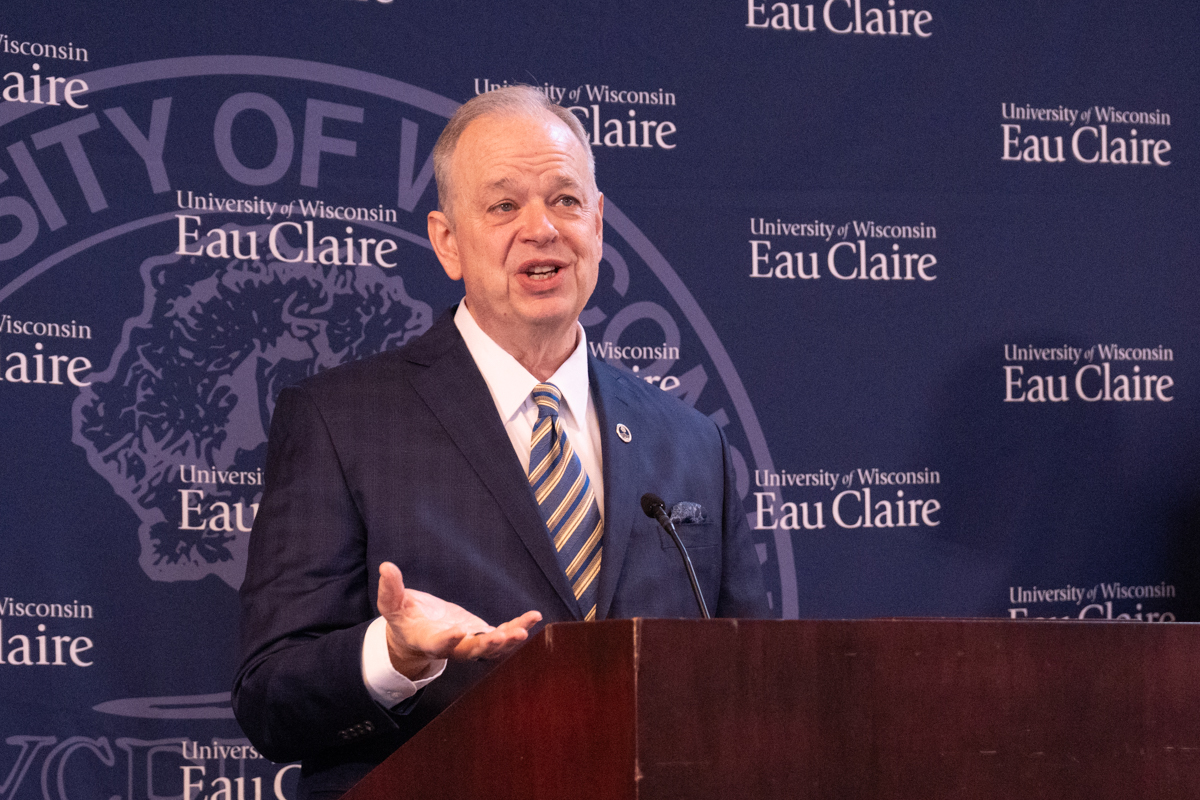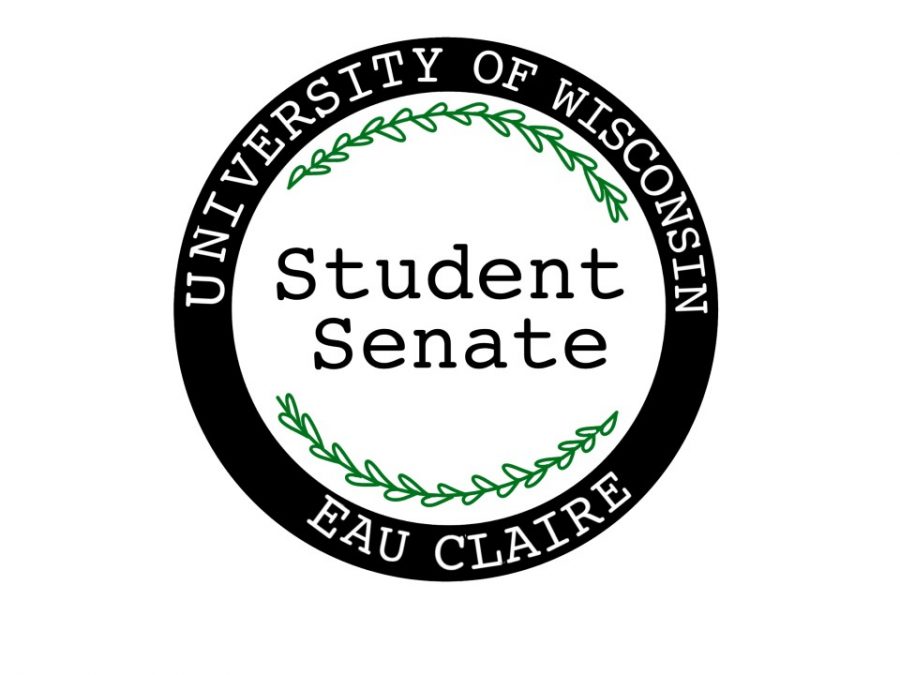State lawmakers are talking of freezing UW System tuition in light of a recently exposed budget surplus.
The Legislative Fiscal Bureau issued a report on April 19, unfolding a UW System reserve account balance of about $648 million.
The UW System said in a statement on Friday, April 19 that only $207 million is uncommitted.
According to the Legislative Fiscal Bureau report, uncommitted funds account for 24.7 percent of the UW System’s $2.47 billion budget.
UW president Kevin Reilly said last week the UW System’s holdings were on par with similar institutions. Between 2002 and 2012 tuition climbed 134 percent.
Reilly recommended a 2 percent tuition increase in each of the next two years after Walker’s budget allotted a $181 million increase in UW System funding.
Currently Eau Claire tuition is about $4,400 per semester, not including segregated fees, a Blugold commitment charge and other expenses. A 2 percent tuition hike would add about $90 per semester onto Eau Claire tuition.
UW System Board of Regents voted to hike tuition by the maximum allowable 5.5 percent in each of the last six school years.
Eau Claire carryover
UW-Eau Claire has about $53 million in budget reserves, $14 million saved from student tuition. The Eau Claire and UW System reserves both total about 25 percent of their total budgets. There is no policy in place for appropriate budget holdings.
About $46 million of the total Eau Claire carryover balance is committed to food service costs, camps housing and winter and summer classes, among other charges.
Eau Claire currently holds a cash balance of about $2.3 million and reserves of about $4.3 million – a total of about $6.6 million in uncommitted funds.
All in all, unassigned funds mark around 3 percent of the total budget.
Eau Claire interim chancellor Gilles Bousquet issued a statement last Thursday addressing carryover concerns. Bousquet said Eau Claire’s balance is a “reasonable and responsible” reserve amount.
“As the numbers show, UW-Eau Claire does not have large uncommitted cash balances,” Bousquet said in his memo, “The majority of these funds have been committed to current and future programs and strategic initiatives.”
Ten years ago tuition supported about 38 percent of Eau Claire’s total budget. This year, tuition supports around 62 percent of the total budget, with state and other funding filling in the rest.
David Gessner, Eau Claire Vice Chancellor of Budget and Finance said recent budgets require more reserve funds because enrollment can be uncertain.
Gessner said university budgets are similar to household budgets. Car payments, rent payments and paychecks come at different times of the month.
On payday the bank account may look nice but at the end of the month bills add up, he said.
“The breakdown that occurs is if you lose that job or if your hours are cut,” Gessner said. “That’s very similar to the university if our enrollment changes dramatically. It’s not quite like losing a job for us, but it does affect our ability to retain and employ faculty.”
Gessner went to Eau Claire in the late ‘60s. He was able to pay his way through school with a minimum wage job at K-Mart, he said.
“The state has pulled out support through tax dollars, students have had to pay more,” Gessner said. “The taxpayer support has eroded. I think the driving political reason is that there are so many demands for tax dollars. There’s just not enough money to go around.”
Student governments split
Eau Claire Student Senate unanimously passed a resolution in early February supporting a tuition freeze.
Student Body President Bryan Larson said finding ways to reduce student debt was high on Senate’s radar.
“Our rationale for passing a resolution in support of a tuition freeze was we felt that it was time the cost of higher education didn’t continue to increase and college stay affordable for students,” Larson said.
Although Larson said a freeze could help more students stay and enroll in college, a UW System budget north of $4 billion needs a big carryover.
Because state funding has been sparse, universities have needed to rely more on tuition.
“We’re just concerned the reaction may be a little knee-jerk on behalf of our legislators and we just want to make sure that all the decisions that are made are made with full confidence in the data,” Larson said.
Senate’s decision to support a freeze isn’t echoed on all UW campuses.
UW-Stout Student Association voted unanimously on April 23 to support a 2 percent tuition bump in each of the next two years.
SSA president Juliana Lucchesi said Stout instructors are being pulled away and a freeze would make it tough to keep and reel in good teachers. Stout instructors earn $27,000 less than the national average, she said
“The tuition freeze is something we don’t want here because we’re already running on a very lean budget,” Lucchesi said. “If a tuition freeze were to happen, we’re basically going to start bleeding that very small reserve. That puts us in a very hard financial situation.”
Lucchesi said SSA looked at average Stout tuition – about $7,500 a year – and found a 2 percent tuition increase would amount to an extra $150 a year in tuition.
“We looked at it and there were many more negative side effects than if we were to just ask for a responsible tuition cap,”Lucchesi said.
Lucchesi said Stout students supported the tuition jump.







